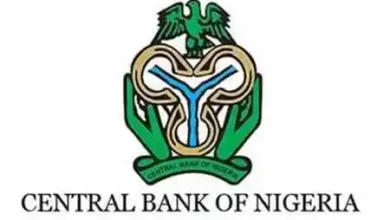US$200bn In FX Repatriation Goal Lofty, Yet Attainable -Emefiele

The Governor, Central Bank of Nigeria (CBN), Mr Godwin Emefiele has said, although the goal of US$200bn In FX Repatriation was lofty, it was achievable.
Emefiele disclosed this in a Keynote Address at the 32nd Seminar for Finance Correspondents & Business Editors in Akure, Ondo State.
He said, “the RT200 FX Programme is a set of policies, plans and programmes for non-oil exports that will enable us to attain our lofty yet attainable goal of US$200 billion in FX repatriation, exclusively from non-oil exports, over the next 3-5 years”.
The RT200 FX Programme has the following five (5) key anchors: Value-Adding Exports Facility, Non-Oil Commodities Expansion Facility, Non-Oil FX Rebate Scheme, Dedicated Non-Oil Export Terminal and Biannual Non-Oil Export Summit.
Emefiele also said that the Produce, Add Value and Export (PAVE) initiative, was expected to make Nigerians consume what they produce, add value to it, and even export the surplus.
He said, it was an initiative akin to South-East Asia’s much referenced export-led industrialization policy which changed the economic fortunes of countries such as South Korea, Taiwan, Malaysia and Singapore.
He said, “PAVE is designed to be the key for fast-tracking a bucket of substitutes to Crude oil export. It encourages backward integration for the local production of select items”.
According him, several measures were taken to ensure foreign exchange stability since assumption of office.
“In our sustained effort to reduce foreign exchange demand pressure and facilitate investment, the CBN, on April 27, 2018, signed a 3-year bilateral currency swap agreement of US$2.5 billion, equivalent to ¥15.0 billion or N720.0 billion with the Peoples Bank of China (PBoC.)
“It is heartening to note that these policies are yielding positive results in terms of meeting genuine demand for foreign exchange and exchange rate stability”, he said.
The apex bank boss said, “towards containing inflation and cushioning the impact of the drop in the supply of foreign exchange in the economy, not only did we tighten the monetary policy stance over a period, we also introduced demand management approaches to conserve our reserves and support the domestic production of certain goods.
“The Bank encouraged manufacturers to consider local options in sourcing for raw materials by restricting access to FX on some items. Four of these items alone, at the time, constituted over =N=I Trillion of the country’s annual import Bills.
“In addition to these measures, the Bank also established an Investors and Exporters Window (I&E), to allow for purchase and sale of FX at prevailing market rate. Furthermore, we ensured the liberalization of the Foreign Exchange Market through the operationalization of the “Revised Guidelines for the Operation of Nigerian Inter-bank Foreign Exchange Market” in June 2016. The guidelines introduced the Naira-settled Foreign Exchange Futures Market.
“Other measures taken by the CBN include: partnership with commercial banks to go after Nigerians who falsely bought dollars under the pretense of traveling abroad and ended up roundtripping.
“The Central Bank of Nigeria had also sanctioned Bureau De Change (BDC) operators for illegal forex trading and discontinued the sale of forex to the Bureau operators in Nigeria. In addition, licensing of new BDCs was suspended. The CBN also introduced the ‘Naira 4 Dollar Scheme’ to encourage diaspora remittances”, he said.
He noted that “over the years, the FICAN Seminar has continued to deepen the knowledge and understanding of Business Editors and Financial Correspondents about CBN’s policies and initiatives. This forum facilitates exchange of information and ideas between the Bank and the media toward the good of our country.
“I am informed that seasoned professionals have been selected to present papers on the theme of the Seminar, I therefore, invite all participants to learn from the wealth of knowledge they are bringing to bear.
“We expect that at the end of the sessions, participants would have acquired an in-depth understanding of the presentations and acquired a greater appreciation of the Bank’s commitment to economic growth and development”, he said.






